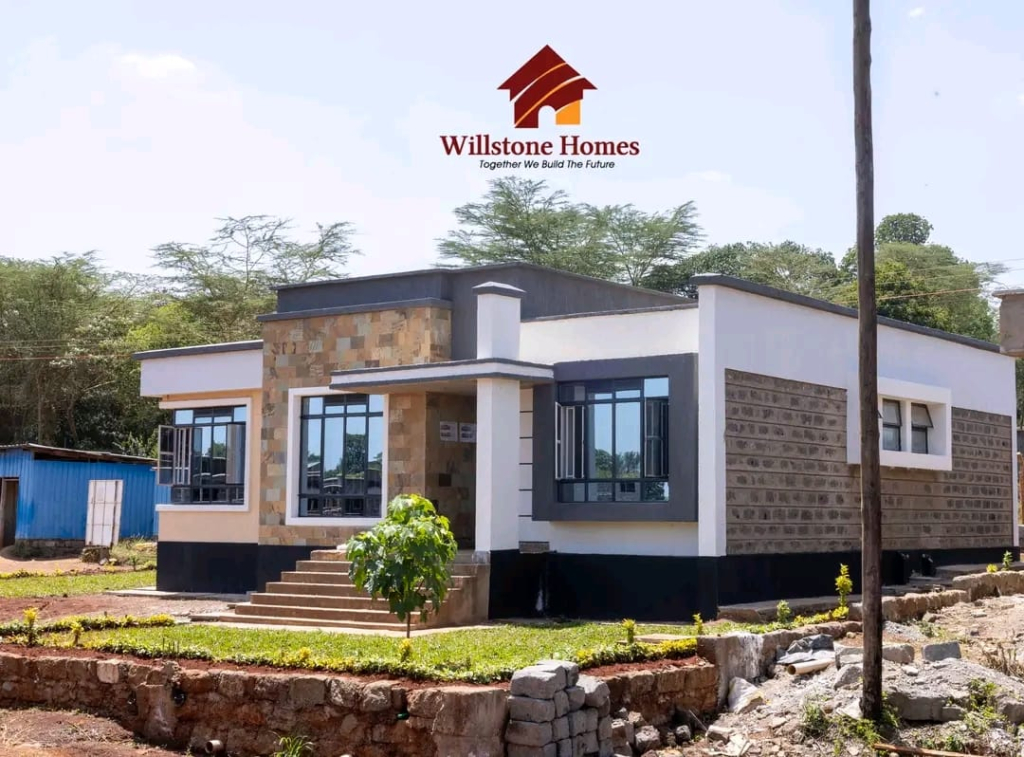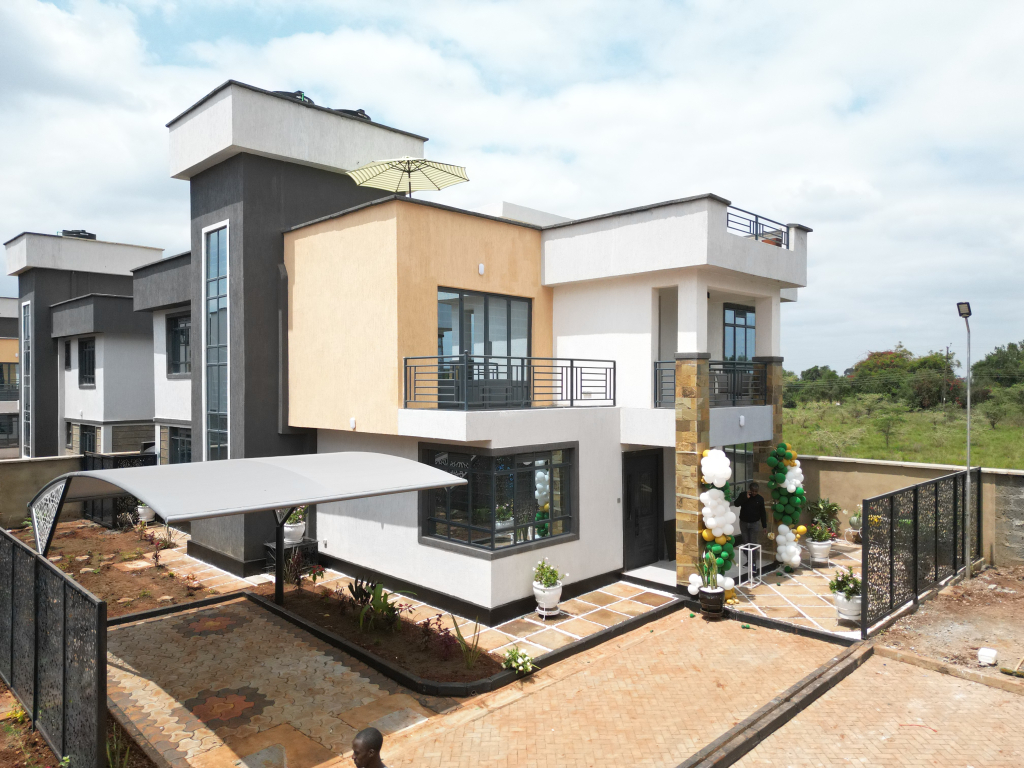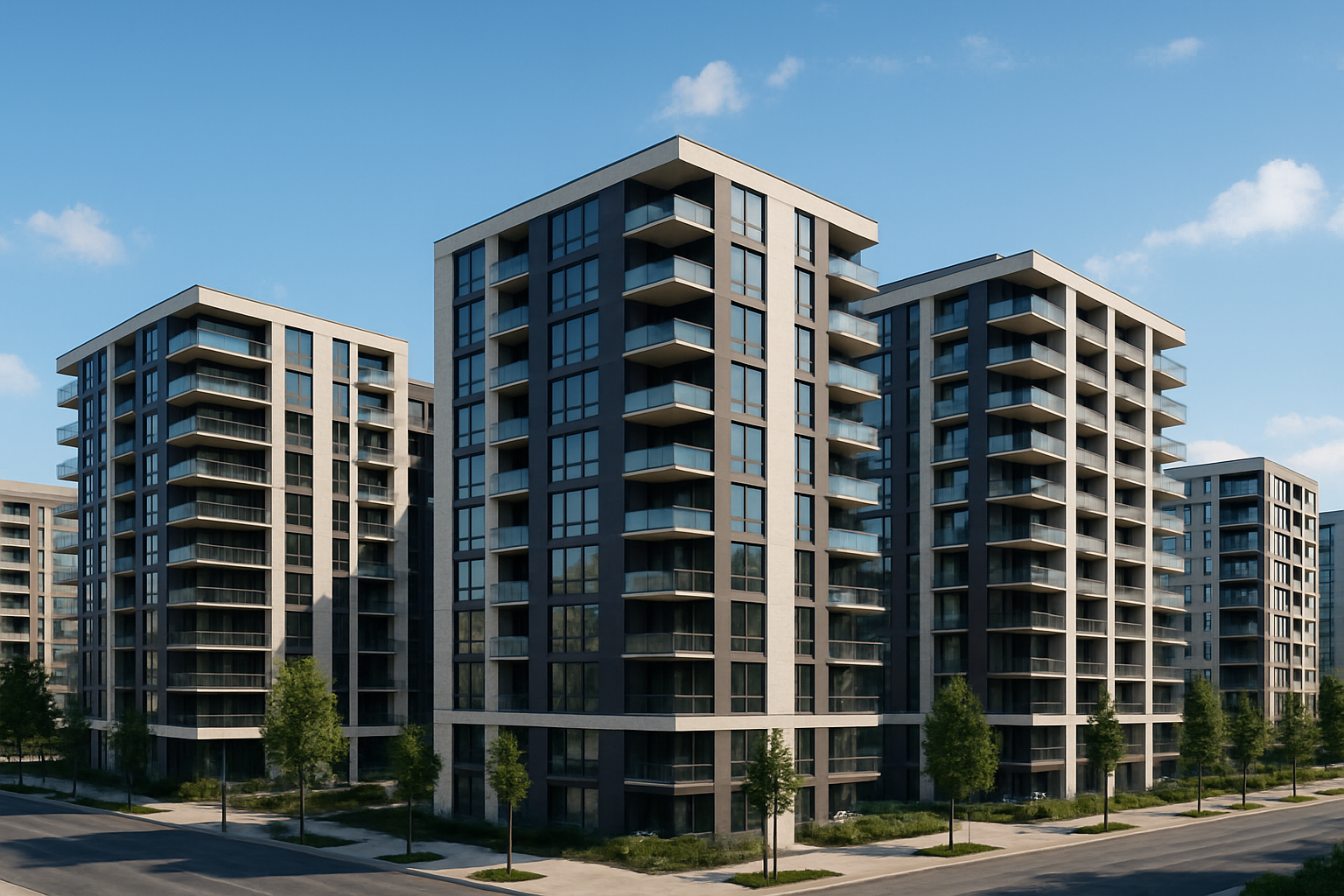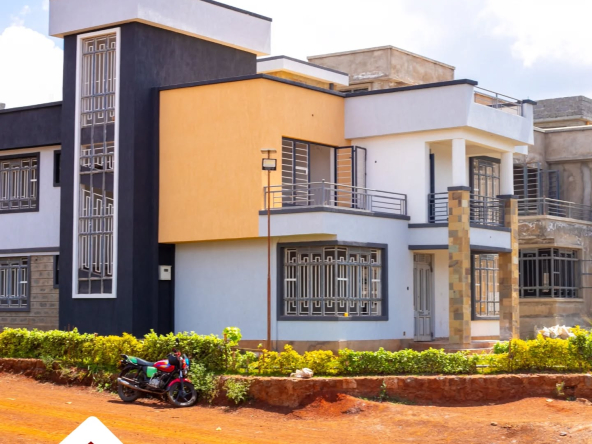The Nairobi property market in 2025 is more dynamic than ever. Young professionals, growing families, and investors are all asking the same question: Is it better to buy an urban apartment in the city or a home in Nairobi’s satellite towns?
The truth is, both options have advantages — but the smarter buy depends on lifestyle, cost, and long-term investment goals.
Here’s a data-backed look at urban apartments vs satellite town homes in Nairobi.
The Case for Urban Apartments in Nairobi
Pros:
- Convenience & Access: Living in Westlands, Kilimani, or Upper Hill means short commutes to offices, schools, and hospitals.
- Rental Demand: Strong demand from expats and young professionals keeps occupancy rates high.
- Amenities: Apartments often come with gyms, pools, and security, adding lifestyle value.
Cons:
- Smaller Space: A 2-bedroom apartment in Kilimani (KES 12–15M) is often half the size of a townhouse in Kitengela at the same price.
- High Service Charges: Expect KES 10,000–25,000 per month in gated apartments.
- Parking & Congestion: Urban density means limited parking and traffic headaches.
Read Also: Negotiating Property Prices in Nairobi: What Really Works (and What Doesn’t)
The Case for Satellite Town Homes
Popular satellite towns include Syokimau, Ruaka, Kitengela, Athi River, Ruiru, and Ngong.
Pros:
- Space & Value: For the price of a 2-bedroom in Westlands (KES 15M), you can often buy a 3- or 4-bedroom townhouse with private parking and a backyard in Kitengela.
- Lower Service Charges: Gated communities in satellite towns average KES 2,000–5,000 monthly.
- Growth Potential: Infrastructure projects (like the Expressway, bypass roads, and commuter rail) keep pushing property values upward.
Cons:
- Commute Times: Living 20–30km from CBD means spending 1–2 hours in traffic daily, unless working remotely.
- Rental Demand: Slower compared to city apartments, with yields averaging 5–6% vs. 7–8% in prime urban areas.
- Less Prestige: Satellite town addresses don’t always carry the same “status appeal” as Nairobi’s established suburbs.
Cost Comparison: Apartments vs Town Homes (2025 Snapshot)

| Location & Property | Average Price (KES) | Monthly Service Charge | Typical Rental Yield |
|---|---|---|---|
| 2-Bedroom Apartment, Kilimani | 13M | 15,000 | 7.5% |
| 3-Bedroom Apartment, Westlands | 20M | 20,000 | 7% |
| 4-Bedroom Townhouse, Kitengela | 15M | 3,500 | 6% |
| 3-Bedroom Maisonette, Syokimau | 12M | 4,000 | 5.5% |
Lifestyle vs Investment: Which is Smarter in 2025?
- For Professionals: Urban apartments win for convenience, shorter commutes, and strong rental demand.
- For Families: Town homes in Nairobi’s satellite towns offer space, privacy, and affordability.
- For Investors: Apartments deliver better rental yields, while town homes may appreciate faster as infrastructure improves.
Read Also: Property Taxes in Nairobi: Annual Land Rates and What They Mean for Buyers
In 2025, there’s no one-size-fits-all answer.
- Choose urban apartments in Nairobi if you value location, rental income, and lifestyle amenities.
- Choose satellite town homes if you want more space, lower costs, and can handle longer commutes.
Smart Nairobi home buyers balance both: live in a satellite townhouse for family comfort, and invest in a city apartment for rental returns.
Ready to Find Your Ideal Gated Community?
At Willstone Homes, we don’t just build houses — we create secure, modern gated communities where families thrive. Whether you want the space of a townhouse in Nairobi’s satellite towns or a well-connected home near the city, our projects are designed with privacy, convenience, and value in mind.
👉 Explore Willstone’s gated communities today and take the first step toward smarter living in 2025.






